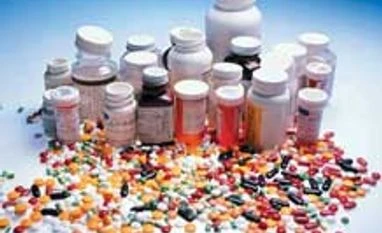Interestingly, Gujarat tops the list of cases where pharmaceutical companies have overcharged the customer for a drug whose price ceiling has already been fixed by the NPPA.
H G Koshia, commissioner of Gujarat Food and Drug Control Administration (FDCA) informed that last week NPPA had notified all state licensing authorities to furnish data related to 138 drugs manufactured by drug companies in the respective states. "We are not maintaining such a database, and have requested the manufacturers to share the required data," he added. Currently, the FDCA is in the process of sorting out the list of manufacturers that are making these formulations. There are over 2000 licensed drug manufacturers in the state.
More From This Section
According to the new DPCO, prices of 348 essential drugs would come under pricing control. The earlier DPCO of 1995 regulated the prices of 74 bulk drugs. According to the new drugs policy, the prices of medicines will be capped by taking the simple average of all brands that have more than one per cent market share. Hence, the NPPA has sought data on manufacturers.
"Once the ceiling price is fixed, manufacturers will have 45 days time to to withdraw existing products from the market and introduce the same drugs in line with the new pricing regime. Our work then will be monitor whether the new pricing norm is followed," Koshia said.
He further added that Gujarat has topped the list in reporting most number of cases under the old DPCO where the manufacturer has overcharged the customer for a drug whose price was already fixed. "State drug control authorities keep a tab on medicines that come under the DPCO, and check if any company is overcharging the consumer. These cases are then reported to the NPPA, which then issues notices to these drug companies and retrieves the excess money charged with interest", Koshia explained.
Implementation of new order needs re-look: IDMA urges Centre
The Indian Drug Manufacturers' Association (IDMA) feels the directive to replace existing stock of medicines with new packs carrying the revised maximum retail price (MRP) within 45 days from the date of notification is not practically viable. Chirag Doshi, senior official of the IDMA, Gujarat wing informed that the association has also approached the Union ministry of Health in this regard. The association, however, is not asking for an extension of the 45-day implementation period. He elaborates, "If a company has all-India marketing network, it is practically impossible for it to recall all the batches of medicines currently under circulation in the market within such a short time. Added is the cost of transportation, which is huge. Moreover, to replace the entire existing packaging with new MRP is cumbersome and will result in huge wastage of medicines." Industry insiders also feel that such an approach would also result in huge drug shortage in the market, and patients would suffer, in turn.
Re-packaging is not viable, feels the IDMA. Most manufacturers would choose to discard the old batch of medicines and manufacture the new batch with the newly notified price, Doshi said. He further added that manufacturers who have access to IMS data have already started calculating the new prices of the formulations that have come under the new DPCO umbrella following the new formula, and have started reducing the medicine prices. "This is in case of bigger manufacturers, while the smaller ones are still waiting for the National Pharmaceutical Pricing Authority (NPPA) notification to come in which would specify the new ceiling prices. Drug makers want that at least drugs that have been manufactured before May 15 (the date when the new DPCO was notified), to be exempted from recall," he explained. IDMA is meeting Union health department officials on June 20 to discuss the issue.
)